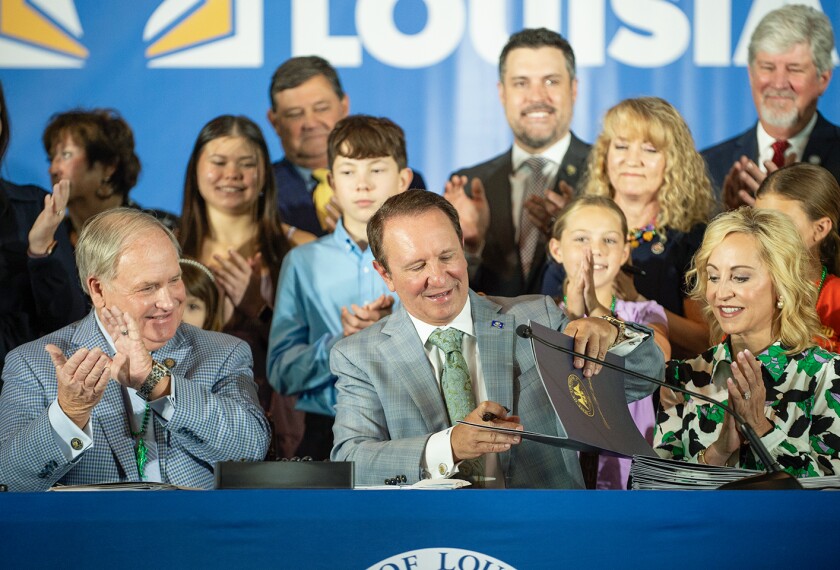One often-overlooked facet of the major campaign-finance case decided by a sharply divided U.S. Supreme Court last week is that the restrictions on political communications at issue applied not just to corporations, but to labor unions as well.
But while the AFL-CIO joined with many business and conservative groups in seeking to overturn the restrictions of the Bipartisan Campaign Reform Act of 2002—the McCain-Feingold law—the teachers’ unions were not necessarily on the same page as the nation’s largest labor federation.
The high court on Jan. 21 overturned limits on spending by corporations and unions on political communications around election time. The 5-4 decision overruled two key precedents on campaign finance and struck down major provisions of the McCain-Feingold law.
“Our nation’s speech dynamic is changing, and informative voices should not have to circumvent onerous restrictions to exercise their First Amendment rights,” Justice Anthony M. Kennedy wrote for the majority in Citizens United v. Federal Election Commission (Case No. 08-205). Most of his opinion was joined by Chief Justice John G. Roberts Jr. and Justices Antonin Scalia, Clarence Thomas, and Samuel A. Alito Jr.
Justice John Paul Stevens, writing in a dissent joined by Justices Ruth Bader Ginsburg, Stephen G. Breyer, and Sonia Sotomayor, said the majority’s ruling “threatens to undermine the integrity of elected institutions across the nation.”
The AFL-CIO, of which the 1.4 million-member American Federation of Teachers is a member, had filed a friend-of-the-court brief opposing limits on union political speech. But the AFT said it was disturbed by the high court’s decision.
“The ruling is a victory for corporate special interests and a setback for those of us who supported campaign-finance reform and believed that there should be a level playing field in political races,” AFT spokesman John See said last week.
The 3.2 million-member National Education Association—not a member of the AFL-CIO—declined to file a brief. But in a statement after the ruling, the union said, “Corporations will be able to inject enormous amounts of money into the political arena.”





